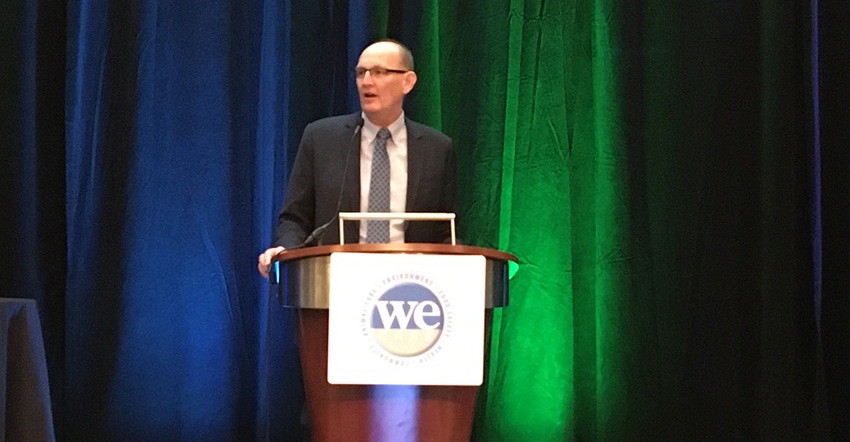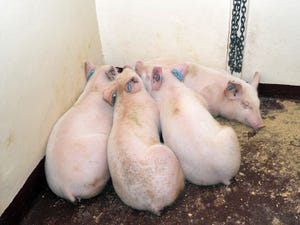USDA's African swine fever action plan announced
Though plan is in place, main commitment is to keep the United States ASF-free.
March 6, 2020

The USDA's Under Secretary for Marketing and Regulatory Programs Greg Ibach today announced additional measures to control and eradicate African swine fever if the virus is ever detected in the United States.
"First and foremost, USDA is committed to doing all it can to prevent ASF from entering the U.S. and we greatly appreciate the pork industry's vigilance and partnership in this successful effort thus far," says Ibach, speaking to American pig farmers at the National Pork Industry Forum in Kansas City, Mo. "However, the additional measures I am announcing today will strengthen our ability to quickly and effectively respond to the disease if detected here at home."
USDA is prepared to implement the following measures to help ensure an immediate and effective response if ASF is detected in the United States.
Secretary Sonny Perdue would immediately take necessary steps to declare an "extraordinary emergency," establishing USDA as the leader of a coordinated national approach to control and eradication, and ensuring the availability of funding and additional resources necessary for the response.
USDA would issue a national standstill of at least 72 hours to prohibit all movement of swine increasing USDA's ability to stop disease spread and to act quickly to restore movement on a regionalized basis.
For the depopulation of infected and exposed animals, USDA would work with states and industry to utilize the most efficient and effective depopulation methods approved by the American Veterinary Medical Association that are appropriate for the affected premises.
To prevent virus from leaving infected premises, USDA will work proactively with industry and states to ensure producers have herd plans to deal with carcass disposal in line with regional and local requirements, supporting composting and burial in place as preferred options.
To reduce paperwork, USDA plans to pay for virus elimination at a uniform, flat rate, based on the size of affected premises.
"We are grateful to Secretary Perdue and Under Secretary Ibach for hearing the concerns of U.S. pork producers," says David Herring, National Pork Producers Council president and a pork producer from Lillington, N.C. "We remain committed to working with the USDA and Customs and Border Protection to keep ASF out of the United States."
USDA researchers are developing vaccine candidates that show promise against ASF. Meanwhile, USDA will continue to work with industry and state partners to keep ASF out of the country.
"ASF is epidemiologically similar to foot-and-mouth disease and USDA's system of overlapping safeguards and prevention efforts have been successful against that disease for over 90 years now," Ibach says. "We remain confident those efforts will provide the same protections against ASF."
ASF is a highly contagious and deadly viral disease affecting both domestic and feral (wild) pigs that has not been detected in the United States. ASF does not affect human health and cannot be transmitted from pigs to humans.
Sources: USDA Animal and Plant Health Inspection Service and National Pork Producers Council, which are solely responsible for the information provided, and wholly own the information. Informa Business Media and all its subsidiaries are not responsible for any of the content contained in this information asset.
You May Also Like



